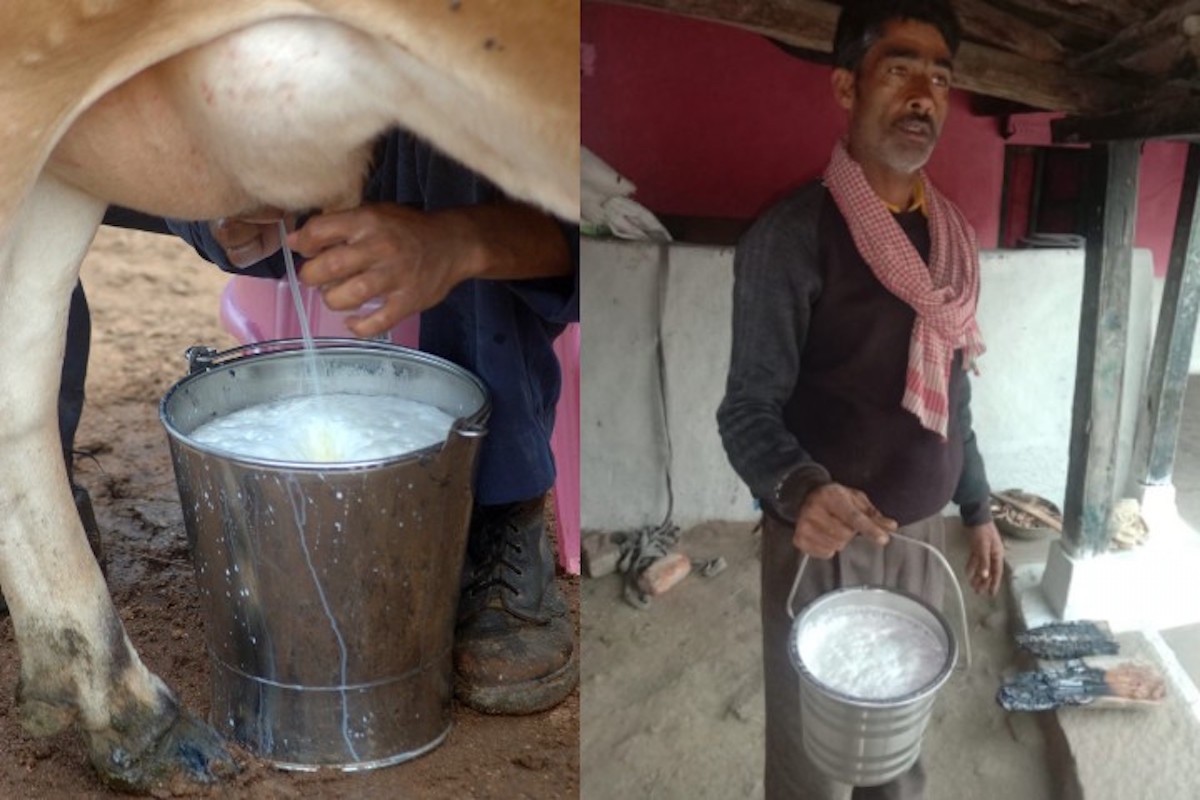Vijay Singh, a small-time farmer in central India’s Madya Pradesh, was badly hit big by the nationwide COVID-19 lockdown that began March 21 of last year.
Singh owns two acres of land in Barmadi villagewhich he mainly uses to grow his rabi crop, a winter cereal. He was hopeful to make a profit from his plot to make up for the year before which was hit hard by a change in weather patterns.
A month after the lockdown began, Singh harvested his crops, but he couldn’t use the roads to get it to the main towns to sell.
Singh and other famers were told by government agencies to wait and watch, something he said he did for three months.
“By that time, the stored crops had been ruined by yeast and most it was rotten. We began to feel that the year was going to be turbulent in more ways than one,” Singh told LiCAS.news.
Two of Singh’s brothers who were working in New Delhi as daily wage laborers also returned home along with their families in early April. The factories where they were working had been shut due to the lockdown.
“Our incomes were dwindling and with an increasing number of people to look after, it was becoming extremely difficult to sustain,” Singh said.
Other farmers in Singh’s village were in a similar predicament.
In June of that year, the village was visited by members of Caritas India concerned about the hardships being faced by the farmers due to the COVID-19 lockdown. What’s more they wanted to offer help.
Caritas member Sunil Kumar told LiCAS.news that after they did an initial survey, deliberations were held over what measures could help affected farmers. Soon enough a viable alternative was found.
“Almost all households in the village were in possession of livestock like cows and buffaloes. The villagers were consuming the milk themselves and a major portion of the produce used to get unintentionally wasted,” Kumar said. “We developed a strategy to start a joint milk producing unit in the village that could provide constant income to the farmers.”
After weighing up the idea, the Caritas members talked with state government officials about how the farmers’ milk could be sold directly to government-run fair-price shops. Once that was established, Caritas then formed a coordination team with government agencies to coordinate milk collection.
Rajeev Gugar, a senior Caritas member, said that collection points were identified wherefrom milk is collected from the farmers. “Several groups have been formed and each group consists of 20 farmers. The milk produced is directly sold to the government run cooperative shops with no middleman involved,” Gugar said.
“Each farmer involved in the process earns no less than 7,000 to 8,000 rupees ($150) every month,” he said.
Singh, who till June was finding it difficult to make ends meet, became an active member of the Caritas dairy milk project. He owns three cows and a buffalo, but it had never occurred to him to sell the milk for profit.
“I was relying entirely on my crops. It is because of the efforts of the Caritas team that we now have something profitable, even with the limited livestock we have. I am planning to buy more cows and expand the business. It is going to be my source of livelihood from here on now,” Singh said.







